~ by Dora Endre ~
Director siblings Adam Nee and Aaron Nee tackled a serious task with their third feature. None other than reviving a classic genre. Romantic-adventure-screwball comedies had immense popularity back in the Heyday of Hollywood. It is enough to think of such movies as Frank Capra’s It Happened One Night or John Huston’s The African Queen. The Lost City is a real summer gem for anyone and everyone hungry for a comforting movie in frustrating times. The Nee brothers managed to turn their goofy and unpretentious concept into a popcorn flick pulsating with a strong heart and sharp intelligence.
Ode to Comedy: What Makes It a Wonderful and Sidelined Genre?
Comedy fans more often than not complain about how difficult it is to find a witty new TV show or movie these days. Whether it is streaming or theatrical releases, the tendency is the same. There is an incredible amount of content out there yet certain genres are nearly extinct. The barriers are low. Original content that has both depth and entertainment value are as rare as a month spent without public shootings in the U.S.
Most movies that come out of the factory-like film studio system are typical mainstream movies. And no doubt, a number of mainstream films lack creative effort and exciting ideas. Even wonderful franchises, such as Star Wars, have been in a downward spiral thanks to their new instalments.
If we put aside superhero movies, blockbuster adventures, fantasies, easily consumable horrors and thrillers, mostly it is dramas that we have left on our plate. Film festivals as well as film academies have a tendency to be seriously biassed towards the genre. Think of costume dramas, LGBTQ+ dramas, romantic dramas or “Oh My God! Is that Christian Bale?” dramas. I believe by now, Bale has his own sub-genre.
The ugly truth is, it is much easier to make an unsettling drama with higher chances for international distribution and recognition than a comedy, which could run a similar course. Even if a comedy is of high-quality, more often than not, it still stays depreciated. Comedy is risky business. It is expensive and in many instances, region or country specific. Moreover, in order to make a good one, there is a list of skills you have to be excellent at.
“Netflix and Amazon don’t have a coherent strategy, at least for comedy,”
– BBC Commissioner Simon Lupton told IBC.org.
“They never tell you what works; they just say it’s a myriad of things.”
Comedy is only about 17% of Netflix’s original content and a great proportion of that is stand-up. According to accounts of agents and producers frequently working with Netflix, The Hollywood Reporter states:
“Netflix has paid stand-up comedians anywhere from $50,000 to $20 million for a single one-hour special, with the most common price tag now about $500,000.”
However, the company paid Dave Chapelle $60 million and Chris Rock $40 million for their specials.
Stand-up megastars bringing their own material to the streamer in form of a single special, shot at a theatre of their choosing attracts a large pool of viewers and lowers the costs of production. An original comedy would cost more to make, produce and market. “Money, money, money must be funny…”
Great comedy writers and directors, just like gifted comics, share the qualities of playfulness, intelligence, spontaneity, pitch perfect timing, first-class improvisation skills as well as emotional depth and sensitivity. This is only a few of the necessary skills. Comedy is a blood and sweat soaked genre. A good one serves us audiences with a distorted yet entertaining mirror through which we can reflect on their own lives and failibilities. We laugh while following along and oftentimes feel in Spain without the S. Comedy is a sincere genre, with no self-indulgence and no desperate desire to teach us a big lesson. It transpires and transforms effortlessly.
Furthermore, it represents reality with more authenticity than straight dramas. There is no light without darkness. For instance, funerals are many times filled with strangely comedic moments. Think of the 88-year-old grandfather falling asleep in the first row, occasionally interrupting the church service with his truck-like snoring. Heart-wrenching yet funny, isn’t it? Or take the most embarrassing job interview of your life as an example. Maybe you arrived late due to a pack of cows blocking the road, and by the time you got to the office you smelled like one of the said animals yourself. Embarrassing yet hilarious.
To laugh at sad and difficult matters is not only a well-oiled coping mechanism. It is also about seeing the hilarious, impossible, illogical side of life. Life, sometimes, is absurd. We better grow able to laugh at ourselves, circumstances, friends, mistakes, arguments, hardships, breakups, get-togethers, divorces and even our own deaths. If you feel your life frequently resembles that of the violinists playing their swan song on the deck of the sinking Titanic, it might be a good idea to take a breath and get a new perspective on things. Comedy can be a great asset to do exactly that. Whether it is a farce, a burlesque, a parody, a slapstick, a satire, a romantic comedy or a black comedy, it may make us become more appreciative of the little things.
Anyways, the widespread complaints are rightful. Good comedies are rare commodities these days.
The Lost City: “Maybe I can shield you.”
The Nee power brother duo might make you sceptical first. It made me, for sure. I judged the movie by its poster. It includes Hollywood A-listers goofing around trying to escape an explosion. Also, the story takes place on a treasure island. To sum up, I got tricked by my own preconceptions.

The Nee Brothers
The Lost City stars Sandra Bullock as Loretta Sage, the uncrowned queen of erotic-adventure novels and Channing Tatum aka Dash who gained his reputation for being the cover model of Sage’s books. Sage admittedly aspired to pen books of real historical merit but her academic work got turned down by every existing publishing house. Eventually, she decided to write popular garbage instead.
The plot sets off with the first stop on her new novel’s press tour. She gets into a fight with the Ken doll-esque, seemingly empty-headed Dash. After the event, Sage gets kidnapped and taken into the South American jungle by the obsessive relics hunter mogul Abigail Fairfax, played by Daniel Radcliffe. Yes, you have read it right, Abigail. Fairfax forces Sage to translate a piece of ancient writing in order to find a long-lost priceless crown. Only Dash, our stumbling hero in ripped jeans, can save the writer and through her his own career. Spoiler alert, he packs scented candles and face masks to his jungle trip. I mean, you never know what you will need in a hostage rescue.
The Lost City turns out to be a surprisingly sweet and charismatic gem with a stellar cast. They show great chemistry, a whole lot of playfulness and probably had a good time playing off of each other. Furthermore, the filmmaker duo balanced heart with head here, it is a witty movie with emotional depth. The biggest merit of The Lost City is that it is very humane.
We, as viewers, laugh at how actors are laughing at the stereotypical interpretations of themselves. The boxes where critics, the media or filmmakers put them. The boxes where they got stuck. Channing Tatum is having a wonderful time introducing us to the many more colors we would never think he has.
The film meditates much on running in the same old circles. Writing the same novel, portraying the same character time and time again. The dangers those repetitive patterns hold. How they burn people out. Sage became a popular but insignificant author. She feels she has abandoned her dreams. She feels she has sold out. She is a scholar, an archaeologist. She also suffers from depression due to the unexpected death of her beloved husband. So our protagonist, just like all the main characters, very much lives in the past. This is cleverly juxtaposed with the social media assistant who joins Sage’s marketing team right at the beginning of the movie. Past versus present. Well-educated versus simple-minded. Richly layered versus seemingly shallow.
The Nee brothers purposefully make us judge from the get–go. We judge by looking at the movie poster, we judge by hearing extracts from the dime novels Sage writes, and we judge when we meet the good-hearted but not so sharp Dash. However, by the time the credits roll, we are gently but firmly slapped across the face for judging: there is always more that connects us than what differentiates us. For instance, fears, grief or wanting to prove ourselves. Not to mention eczema. We all know how uncomfortable a stubborn eczema can get.

The script treats the classical genre of romantic-adventure comedy and its components with respect. The writers use intelligent dialogue and create entertaining moments through humor both in language and in situations. The original score adds another layer of absurd wit to the story. Daniel Radcliffe, who plays our villain, rose to fame through his portrayal of Harry in the Harry Potter franchise. Here, any time Radcliffe appears on screen, the filmmakers use pieces evoking John Williams’ brilliant Potter score. As for the non-original score, avid moviegoers and True Detective fans should look out for familiar music popping up. Really smart choices the Nee duo made.
Generally speaking, The Lost City is one of the most enjoyable cocktail comedies of this year. It struggles with some occasional flip-flopping nevertheless it never loses charm and pace. When it comes to the supporting storyline and characters, there definitely are loopholes and rough edges. Without trying to defend the filmmakers, the Bullock-Tatum-Radcliffe trio steals the show every minute they get on screen. This results in an imbalance between the supporting and the main plotline.
All in all, there is a lot of wholehearted fun and adventurous action to The Lost City. A movie that makes us contemplate on the prism of colors we all have, the changes and growth we go through. The bottomline is, we should try and see two things. One, we are all beautifully complex and complicated. Two, Daniel Radcliffe grew into an adult. He has a full beard and all that.
Where to Watch: Movie Theatres, Paramount+ and Prime Video.

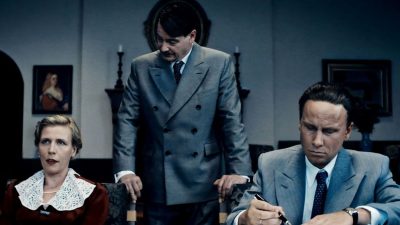
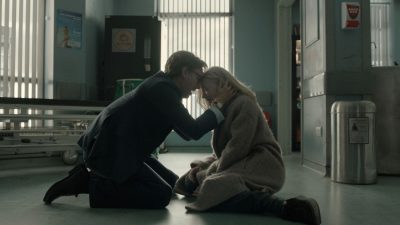


















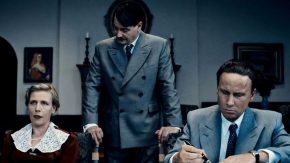
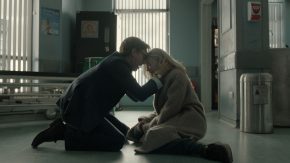

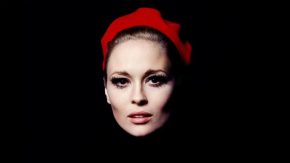
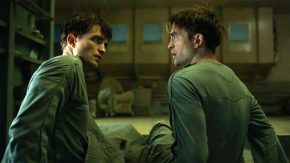
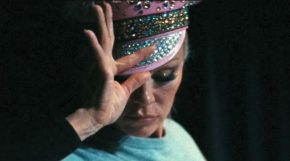
Comments